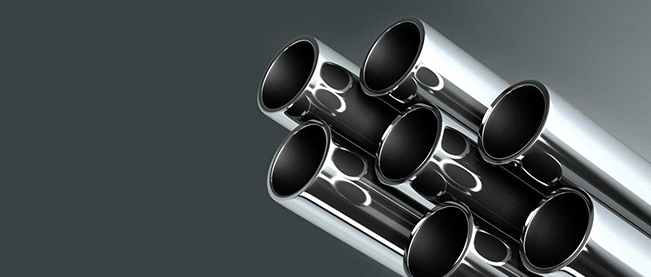- رؤيتنا: أن نكون موردًا ممتازًا لحلول أنظمة الأنابيب الصناعية العالمية.
- مهمتنا: المساعدة في بناء خطوط الأنابيب الصناعية العالمية بالمنتجات المصنوعة في الصين.
- رؤيتنا: أن نكون موردًا ممتازًا لحلول أنظمة الأنابيب الصناعية العالمية.
- مهمتنا: المساعدة في بناء خطوط الأنابيب الصناعية العالمية بالمنتجات المصنوعة في الصين.

شركة Shanghai Toko Technology Co. ، ltd هي أشهر المصنعين والموردين. نحن ملتزمون بتصنيع وتصدير الفولاذ المقاوم للصدأ سلس الأنابيب ، والأنابيب الملحومة من الفولاذ المقاوم للصدأ ، والتجهيزات والفلنجات المصنوعة من الفولاذ المقاوم للصدأ ، منتجات سبائك النيكل ، أنابيب التيتانيوم غير الملحومة والملحومة ، إلخ. مصانعنا كلها معتمدة من ISO & PED ، ويمكن إنتاج المنتجات في ASTM القياسي ، JIS ، DIN ، EN ، GOST ، إلخ. منتجاتنا تستخدم على نطاق واسع في النفط والغاز والبتروكيماويات ، تكرير السكر ، عملية المياه ، تحلية المياه ، صناعة الطاقة الحرارية الأرضية إلخ. قمنا بالتصدير إلى العشرات من البلدان والمناطق مثل الولايات المتحدة الأمريكية وكندا واليابان وألمانيا وفرنسا وكوريا وتركيا إلخ.
 اخبار الصناعة
اخبار الصناعة
ومن بين الأجزاء الدقيقة في التصنيع المتطور، سبائك النيكل C276 المكسرات أصبحت عناصر اتصال لا غنى عنها في العديد من المجالات الصناعية بفضل مقا...
.jpg?imageView2/2/format/jp2) اخبار الصناعة
اخبار الصناعة
في الصناعة الحديثة، الفولاذ المقاوم للصدأ الأنابيب غير الملحومة ذات الجدران السميكة أصبحت مادة لا غنى عنها ومهمة في العديد من المجالات بسبب ...
.jpg?imageView2/2/format/jp2) اخبار الصناعة
اخبار الصناعة
في رحلة تصنيع أنابيب غير ملحومة من الفولاذ المقاوم للصدأ سداسية الشكل بدءًا من الاختيار الدقيق للمواد الخام وحتى التشكيل الأولي للدلفنة على ...
 اخبار الصناعة
اخبار الصناعة
في المجال الصناعي، تعد مقاومة المواد للتآكل أحد المعايير المهمة لقياس قيمة تطبيقها. خاصة في البيئات التي تحتوي على أيونات الكلوريد، تكون مشكلة تآكل...
 اخبار الصناعة
اخبار الصناعة
من بين المكونات العديدة لتكنولوجيا التبادل الحراري، تتميز أنابيب التبادل الحراري غير الملحومة المصنوعة من الفولاذ الأوستنيتي المقاوم للصدأ بتصميمها ...